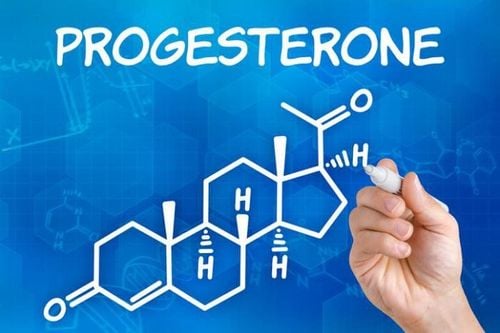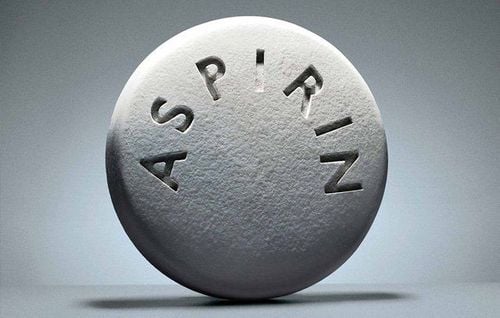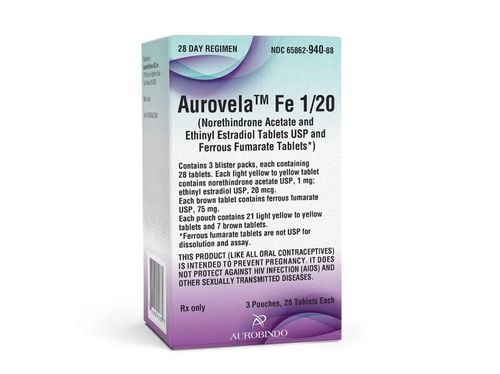This is an automatically translated article.
This article is professionally consulted by Dr. Nguyen Van Thanh - Obstetrician and Gynecologist - Department of Obstetrics and Gynecology - Vinmec Nha Trang International General Hospital. The doctor has many years of experience in the field of Obstetrics and Gynecology.Cardiovascular disease is the leading cause of death worldwide, especially in women. However, if detected and treated in time, it helps to improve the life expectancy and quality of life in these subjects. There are many risk factors for cardiovascular disease such as metabolic diseases such as diabetes, dyslipidemia, age, lifestyle. And interestingly, the menstrual cycle in women is also one of the factors that affect the function of the cardiovascular system.
1. What is the menstrual cycle?
The menstrual cycle is a collection of cyclical physiological changes in women under the control of the sex hormone system to produce female gametes for reproductive purposes. Marks puberty when the first menstrual period appears and the last period ends marking the stage of menopause in a womanDuring the menstrual cycle, the ovaries contain mature follicles that release an egg (double when 2 eggs, can lead to formation of 2 zygotes and fraternal twins). Before ovulation, the endometrium proliferates to restore the previous layer of endometrium that was shed during the previous menstrual period. After ovulation, this endometrium changes to accommodate the implantation of the fertilized egg.
If fertilization does not occur, the endometrial lining of the uterus is shed, expelled and a new menstrual cycle begins. The process of removing the endometrium is called menstruation and is manifested as menstrual blood (the endometrium and blood products) that is expelled from the body through the vagina.
The first menstrual cycle usually occurs between the ages of 12 and 17 years. Menstruation can sometimes occur earlier, from as early as 8 years old, this is still considered normal. The average age of menarche in developing countries is usually later than in developed countries. The time between menstrual periods is usually 21 to 45 days in young women and 21 to 31 days in adult women (average 28 days). Women enter menopause between the ages of 45 and 55, marked by a gradual decrease in the frequency of their menstrual cycles.
Menstrual cycle is controlled by changes in sex hormone levels in the body. The direct effects on the menstrual cycle are estrogen and progesterone. The rise and fall of these two hormones are the main drivers of the menstrual cycle in women
After menstruation, the ovarian follicles begin to recruit and produce estrogen. Increased estrogen levels stimulate the endometrium to proliferate and thicken. The follicles in the ovary begin to develop under a complex influence of hormones, and after a few days one or sometimes two follicles outgrow, while the others regress.
Around the middle of the cycle, 24–36 hours after the LH spike, the dominant follicle releases an egg, this is called ovulation. After ovulation, the egg cell can only live for about 24 hours or even less to wait for fertilization. The rest of the follicles in the ovary will turn into the corpus luteum, the corpus luteum whose main function is to produce large amounts of progesterone.
Under the influence of progesterone, the endometrium will change to prepare to wait for the embryo to implant, when the body enters the state of pregnancy. If there is no embryo implantation in about two weeks, the corpus luteum degenerates, causing the hormone progesterone and estrogen to drop sharply. The decline in that hormone causes the lining of the uterus to shed, which is called menstruation.

2. Effects of sex hormones on the cardiovascular system
Besides the effects of estrogen and progesterone on the sex organs and more specifically the menstrual cycle in women, these two hormones have effects on other organs including the cardiovascular system.2.1 Effects of estrogen on the cardiovascular system Scientists are still learning about the actions of estrogen in the body. Studies have shown that estrogen affects almost any tissue or organ system, including the heart and blood vessels. The known effects of estrogen on the cardiovascular system include positive as well as negative effects.
Increases HDL cholesterol (the good kind); Lowers LDL cholesterol (the bad kind); Dilate blood vessels to increase blood flow; Absorbing free radicals, these naturally occurring free radicals in the blood can damage arteries and other tissues; Increases the risk of thrombosis and also causes a number of other changes with adverse effects. Estrogen may affect the cardiovascular system in other, but poorly studied, ways. Over the years, evidence has suggested estrogen also helps protect women against cardiovascular disease. The study found that women develop heart disease 10 years later than men, but by age 65, their risk is similar to that of men.
It is hypothesized that the drop in estrogen levels associated with menopause accounts for a high proportion of heart disease risk in women. When estrogen levels decrease, levels of LDL cholesterol (the bad type) increase and levels of HDL cholesterol (the good type) decrease, leading to a buildup of fat and cholesterol in the arteries that contributes to atherosclerosis, heart attacks and strokes. myocardial infarction and stroke.
This means that estrogen replacement therapy is likely to improve heart health after menopause. However, more research is still needed on this issue.
2.2. Effects of progesterone on the cardiovascular system There is significant evidence that progesterone (unlike synthetic progestins) has no adverse effects on cardiovascular risk factors. No changes in any of the thrombotic or inflammatory markers were studied, which resulted in significant symptom improvement compared with placebo.
When natural progesterone was used in one group in the PEPI study in place of medroxyprogesterone acetate (MPA), the natural progesterone group had significantly higher levels of HDL cholesterol than the MPA group.
Not only does natural progesterone have no adverse effects on the cardiovascular system, but there is also evidence of beneficial effects. One study found that vaginal gel containing progesterone increased exercise capacity in postmenopausal women with coronary artery disease or previous myocardial infarction who were being treated with estrogen, compared with estradiol alone. in women at risk for cardiovascular disease alone.
Reducing the risk of heart attack, angina, stroke and other cardiovascular and large vessel diseases by restoring hormone balance can reduce the decline in cardiovascular function in women over decades.

3. Changes in sex hormone levels during the menstrual cycle also affect the cardiovascular system
Women with cardiovascular disease are at increased risk of angina and heart attacks during certain phases of their cycle. At a certain point in the menstrual cycle, when the level of estrogen circulating in the blood decreases, women tend to experience increased breast pain or more angina.When tested with myocardial perfusion tests, these patients had myocardial perfusion test results during exercise that showed decreased blood flow to the heart, according to a small study published in the journal Heart.
Angina is a temporary chest pain caused by reduced blood flow to the heart. It has been described as a sensation of tension, heaviness, numbness, heat, or heaviness behind the breastbone. It can spread to the arms, neck, and jaw, and is often triggered by physical activity such as exercise or stress.
Angina attacks usually last less than five minutes, but can last from 30 seconds to 30 minutes. Angina doesn't always cause a heart attack, but angina can progress to a heart attack and requires a doctor's attention - especially if the attacks are frequent. longer, or from activities that are less strenuous than usual. Doctors can check for angina by having patients perform stress tests, then monitoring how much blood is reaching the heart muscle.
The study was conducted on women with an average age of 39 years, with heart disease, chest pain and who had positive results for low blood flow in stress tests. The trial researchers tested treadmill exercise weekly for four weeks, at the same time of day. The researchers also measured the women's estrogen and progesterone levels.

Also during this phase, the time to onset of symptoms of angina from the start of exercise is shorter when compared to the premenstrual period (when both estradiol and progesterone levels are high). Progesterone levels do not appear to have any effect on cardiovascular risks, the researchers said.
Therefore, for patients at risk of cardiovascular diseases, especially in pre- and post-menopausal women, it is necessary to periodically assess cardiovascular function. These subjects have sex hormone levels begin to decline as well as aging of the organs of the circulatory system. Doctors need to check and detect cardiovascular diseases in time in order to give the right and effective treatment methods. To improve the life expectancy and quality of life for patients.
To protect cardiovascular health in general and detect early signs of cardiovascular disease, customers can sign up for Cardiovascular Screening Package - Basic Cardiovascular Examination of Vinmec International General Hospital. The examination package helps to detect cardiovascular problems at the earliest through tests and modern imaging methods. The package is for all ages, genders and is especially essential for people with risk factors for cardiovascular disease.
Please dial HOTLINE for more information or register for an appointment HERE. Download MyVinmec app to make appointments faster and to manage your bookings easily.
References: womeninbalance.org, webmd.com, heart.orgSee also:
Common heart problems Recognize 6 common signs of heart disease 5 things you may not know about your menstrual cycle














